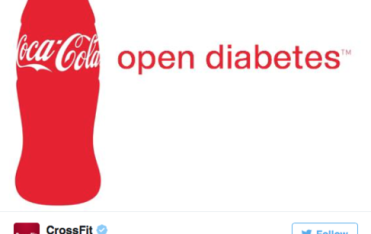Not to sound like a Grinch during the Holidays, but, fitness articles have a bad habit. Every individual study that comes out gets turned into a fitness tip. In reality, scientific concepts are based on the overall picture that emerges after many studies over many years have been conducted and synthesized. We need to get with that program.
There Is Always A Study
Fitness wants to be evidence based, and that’s good. However, a single study or even a couple of studies are not proof of anything. Studies are one piece of a big picture. Once it has been done other scientists try to replicate it, build other experiments off it, incorporate it into their own theories, evaluate, compare, and scrutinize. Maybe, over time, it will become an important piece of a picture, or maybe not. Any conclusion based on one or two studies should be met with skepticism.
Playing Ping Pong With The Rules
The big problem with treating single studies as rule setters is that it creates a ping pong effect in exercise and nutrition. First fat was bad, now it’s good. Caffeine was good, then bad, then good again. Squats are bad for the knees, then they aren’t. Interval training is better than longer duration cardio. Then again, maybe not. This continual back and forth, as we report every new and interesting study, leaves people frustrated and feeling like there are no answers.
The Flexibility To Find The Answer
The biggest casualty from this is intellectual flexibility. The reality of fitness is that there are answers, but they are individual. Not everyone reacts the same way to a certain food, or exercise routine, or lifestyle and not every individual body can look one way or another. We don’t know all the hows and whys, and we may never know.
In a world where we are searching for a magic bullet, every new study seems like it just might be the one. What gets lost is the willingness to try things out and see where it leads, slowly, methodically, and consistently over time and for yourself. It just so happens, that that’s the only way to make a real, long term, and lasting difference in your health and fitness.



Andrew---good points. I want to read that study that says squats are bad for the knees! That’s the one I hope has validity! Here’s an example of what works against accumulation of good evidence---- that I meant to post as I was struck by it. NYT article---“ Study Tied to Food Industry Tries to Discredit Sugar Guidelines” .....Dec 19, with comments. Cites an unreliable medical journal. “A prominent medical journal on Monday published a scathing attack on global health advice to eat less sugar. Warnings to cut sugar, the study argued, are based on weak evidence and cannot be trusted. But the review, published in The Annals of Internal Medicine, quickly elicited sharp criticism from public health experts because the authors have ties to the food and sugar industries. But Barry Popkin, a professor of nutrition at the University of North Carolina at Chapel Hill, said he was stunned that the paper was even published at all because its authors “ignored the hundreds of randomized controlled trials” that have documented the harms of sugar. “They ignored the real data, created false scores, and somehow got through a peer review system that I cannot understand,” he said. “It is quite astounding.” Dr. Christine Laine, editor in chief of The Annals of Internal Medicine, defended the journal’s decision to publish the industry-funded review. She said in an interview that the journal made decisions based on the quality of the research, not the source of funding. “We thought that this was something that our readers would be interested in, and we thought the methods of the systematic review were high quality,” Dr. Laine said. “We decided to go ahead and publish it despite the fact that we’re completely aware that the funding source has a relationship with the food and beverage industry.” Dr. Dean Schillinger, .....said that it was fine to question the quality of nutrition guidelines and to hold them to high standards but that in this case, the researchers and their financial backers had an obvious agenda.” A commenter said maybe the journal “decided to publish this pernicious review because the editors knew it would generate a big controversy. Scientific journals, once publications that hardly drew any attention from the public, are in a "trade war" to bring in more revenue.” I commented: Dr. Laine, the journal editor fixed it so people won’t trust her journal, by publishing profit connected studies. She says their readers would be interested in this, and the review methods were high quality, and she’d publish despite the ties to industry? So let our medical journals be battle grounds for industry paid shills and their opposition? That’s almost like a regular media outlet isn’t it---publishing what their readers would be interested in? May even make it into cable news. This nullifies any reputation the journal may have for dependable high standards. Fake news?